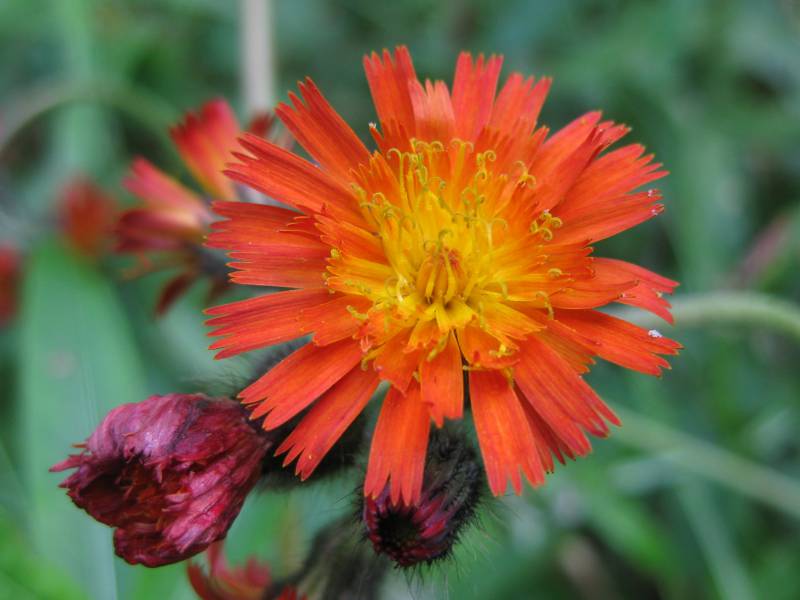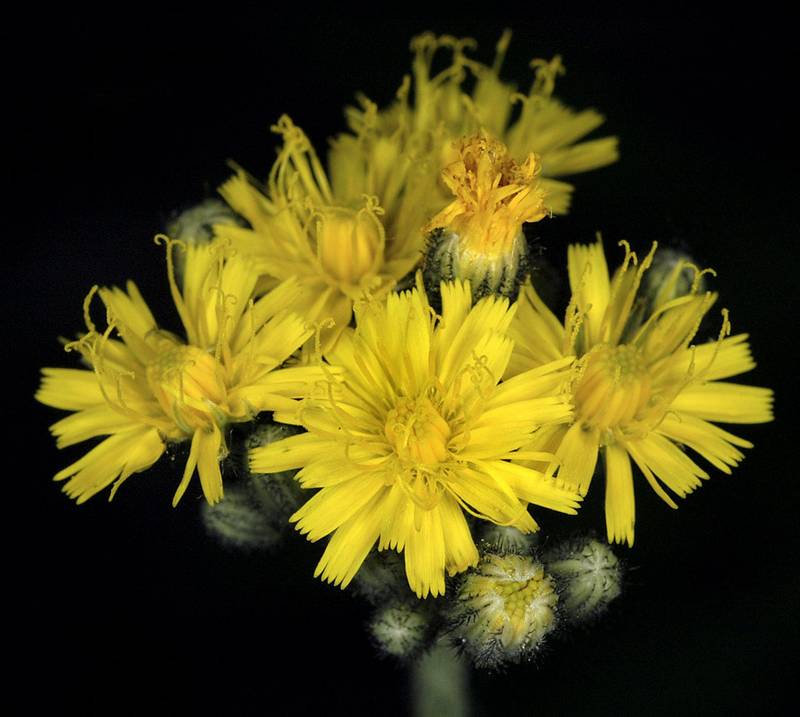Hieracium aurantiacum
Hieracium scouleri
orange hawkweed
hound-tongue hawkweed, Scouler's hawkweed
Leaves all basal except for 1 or 2 very small cauline leaves, with long bristles on both sides, oblanceolate-linear, up to 1 dm. long.
Basal and lower cauline leaves 5-20 cm. long and 1-3.5 cm. wide, entire, the short petiole winged;
leaves reduced and becoming sessile upward.
Heads several in a compact terminal cluster, the corollas all ligulate and bright red-orange.
Achene terete, narrowed toward the base, ribbed.
Hieracium aurantiacum
Hieracium scouleri
Occurring on both sides of the Cascades crest in Washington; British Columbia to California, east across southern Canada and northern U.S; widely distributed throughout eastern U.S.
Occurring on both sides of the Cascades crest in Washington; British Columbia to California, east to Alberta, Montana, Wyoming, and Utah.
- Local floras:
BC,
CA,
OR,
WA
- Local Web sites:
CalFlora,
CalPhotos,
Flora NW,
PNW Herbaria,
Turner Photog.
WildflowerSearch
iNaturalist (observations)
USDA Plants Database
- LBJ Wildflower Center
- SEINet
- Plants of the World Online
- Encyclopedia of Life
- Wikipedia
- Google Image Search



